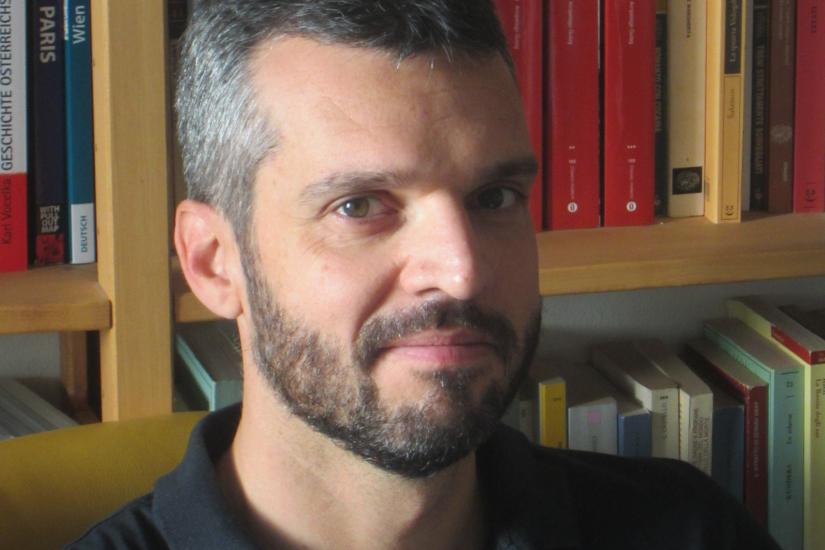
Dear Students, Faculty and Staff of the Department of History,
We are continuing our departmental tradition of organizing weekly research seminars. In these seminars, professors and researchers provide insights into their current work.
On Tuesday, 22.02.2022, 17:40 PM CET, we will have a lecture by Paolo Sartori, Senior Research Associate at the Austrian Academy of Sciences.
Title: The Soviet Archives of Muslimness in Central Asia: 1943-1991
Zoom link will be displayed on the day of the seminar here:
https://ceu-edu.zoom.us/j/93337103536?pwd=bzJ5M3E1eXpRUkZSQldRUnFRQVZYdz09
Meeting ID: 933 3710 3536
Passcode: 271164
Abstract: The opening, albeit partial, of archives in Russia and the successor countries to the USSR has rejuvenated a field, i.e., Soviet history, which during the Cold-War era had morphed into the cramped preserve of Kremlinologists and specialists of the Communist Party. And yet three decades of facilitated access to Soviet documentary storehouses haven’t yielded a sustained reflection on such archives, the edifice of knowledge they came to constitute, and the interpretive challenges they present to the historical craft. Beyond Sheila Fitzpatrick’s best-seller A Spy in the Archives: A Memoir of Cold War Russia and a handful of studies mostly devoted to the reappraisal of Stalinism, little has been done to bring archival sciences to Soviet history. This state of affairs comes across as counterintuitive, for as an academic endeavor, writing the history of the Soviet Union is and will remain a truly archival enterprise. Even more surprisingly, the rich archives of the USSR have only occasionally attracted the attention of historians of religion. The late Sonja Luehrmann alone has attempted to develop a hermeneutics of records produced by atheist bureaucracies to study manifestations of religiosity in post-WWII Soviet Union. Trained as an anthropologist, however, Luehrmann has limited herself to discuss the ways in which documents acted upon Soviet citizens and observed how bureaucracies and archives might have affected religious lives in the Soviet Union.
Historians specializing in areas of the USSR, which once belonged to the Islamicate world, have turned to Soviet archives to refine our understanding of the outcomes of policies of forced secularization. There is a broad consensus now that, after the Second World War, Islam accommodated a great number of challenges and restrictions, but it remained central to the lives of many Soviet citizens; and over the recent years, the number of scholars who paid attention to the fact that to be Soviet and Muslim were not in opposition has increased. However, what is still required from historians is the refinement of a hermeneutic method that allows to explain why and how so many Central Asians regarded Muslimness as a constitutive component of their being Soviet. One step in this direction has been undertaken by Eren Tasar who has convincingly demonstrated the institutionalization in Soviet Central Asia of an Islamic sphere. Tasar’s Soviet and Muslims provides encouragement for a project to pursue further an engagement with what we may term the Soviet archives of Muslimness. Equally, it leaves ample room to attempt to formulate a hermeneutics of records produced by atheistic bureaucracies to study manifestations of Muslim religiosity in the Soviet Union after World War II. This talk is part of a broader project to disambiguate the layered nature of knowledge about Muslimness assembled by the Soviet documentary machinery, identify phenomena that eschewed bureaucratic control, and decipher fragments of a religious episteme derived from Islamic traditions.
Bio: Paolo Sartori (PhD 2006, Start-Preis 2013) is a Senior Research Associate at the Austrian Academy of Sciences and a member of the Young Academy. He has two main fields of interest in his current research: the history of knowledge production about Islam in the Russian Empire, with a special focus on the formation of archives in the post-Petrine era; and Soviet Muslimness, with special attention devoted to Central Asia after the Second World War. His recent publications include an essay on the ‘Archive of the Khans of Khiva’ as a colonial documentary aggregate (Quaderni Storici) and a study devoted to the relationship between Russian imperial expansion in the early 18th century and ignorance of things Central Asian (Itinerario). He currently serves as the Editor-in-Chief of the Journal of the Economic and Social History of the Orient (Brill) and as the Chairman of the Committee for the Study of Islam in Central Eurasia (https://www.oeaw.ac.at/sice).